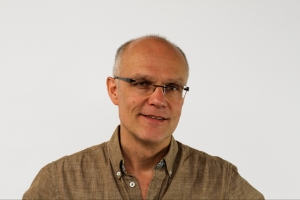Firstbridge courses are offered to degree seeking freshmen and registration is done via webform in pre-arrival checklist.
Professor(s)
Notes
Bringing together urban planning, architectural history and political geography, course ME1099 looks at cities in Western Asia and North Africa. It provides an overview of urban settlement in the Middle East from the beginnings of Islam to the eighteenth century, before focusing on the processes of urbanization in the region from 1800 until today. After looking at the specificities of the region’s cities we explore the interaction between rapid social change, political power and professional planning. Today, uprisings fuelled by demands for social equity and democracy, major conflict driven migrations and the needs of capital all mark cities in the Middle East and North Africa. Students will reflect on issues related to the management, planning and design of extensive city regions, historic centres and poorly serviced self-built areas. Essentially, this course is an introduction to the challenges facing cities located at the critical meeting point of Africa and Eurasia.
Learning Outcomes
- Students will comprehend how information is produced and valued in order to discover, evaluate, use, and create information and knowledge effectively and ethically. In FirstBridge, students will demonstrate the conversational nature of scholarship, and recognize their potential role and responsibilities as contributors to that conversation. For each discipline taught in FirstBridge, students will identify reference works, journals, databases and/or major works in history, in order to start effective research in the field. (FB LO1)
- Students will acquire the study skills, time management, and interpersonal skills needed to meet the demands of university-level academic work at a Liberal Arts College individually or as a team. Students will value the multiple meanings of place through experiential learning at AUP and beyond in the Parisian or global context. (FB LO2)
- Students will discover how urban geographers, planner and architectural historians analyze the city and eventually intervene, in particular with reference to the Middle East and North Africa (MENA Region).
- Students will discover and begin to understand the ways in which the cities of the Middle East and North Africa have been integrated into global patterns of making urban territory (global and local perspective).
- Students will discover something of how immigrant groups from the MENA region have come to Paris, shaping the built environment - and how the State has responded to this presence.
- Students will improve their skills in the analytic reading of academic text and image.
- Students will present work orally, using proprietary software if appropriate.
- In addition, students will have experience of working on a group project which will expand their ability to work with digital technologies over the Internet.
- Students will enhance their intercultural understanding of languages, cultures and the histories of local societies, and the global issues to which these relate. (CCI LO1)
- Students will engage with artistic or creative objects (eg visual art, theatrical works, film) in different media and from a range of cultural traditions. (CCI LO2)
- Students will think critically about cultural and social difference. Students will identify and understand power structures that determine hierarchies and inequalities relating to race, ethnicity, gender, nationhood, religion or class. (CCI LO3)
Syllabus
Schedule
| Day | Start Time | End Time | Room |
|---|---|---|---|
Monday | 13:45 | 15:05 | G-102 |
Thursday | 13:45 | 15:05 | G-102 |

